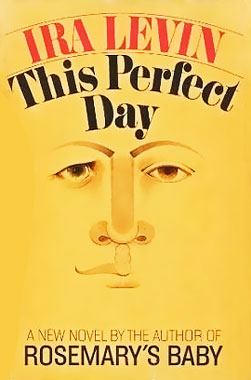
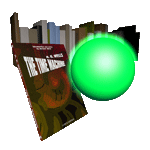
This Perfect Day (1970)
Traduction du titre original : Ce jour parfait.
Sorti aux USA en avril 1970 chez RANDOM HOUSE US (grand format).
Sorti en France en 1971 chez LAFFONT FR (grand format)
Sorti en France en septembre 1973 chez J'AI LU FR (poche, traduction Franck Straschitz).
De Ira Levin.
Pour adultes.
Résumé à venir.
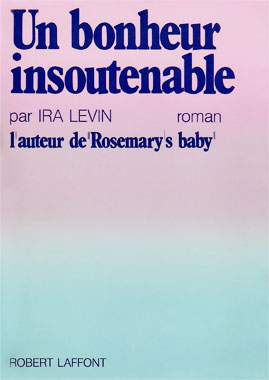
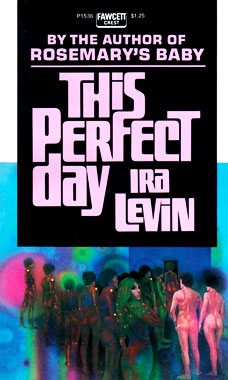
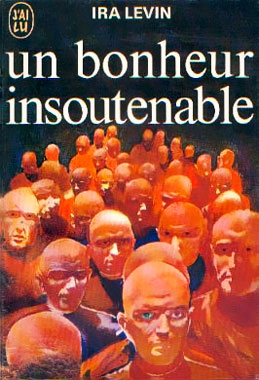
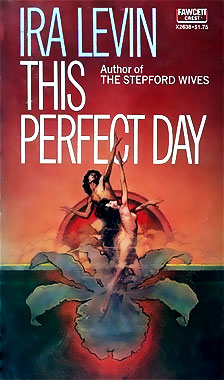
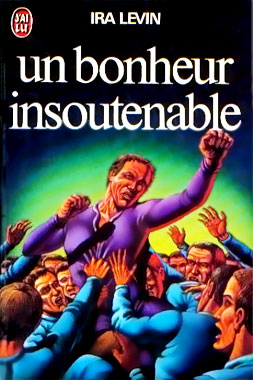
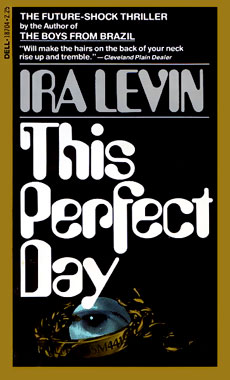
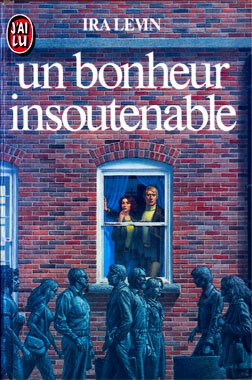
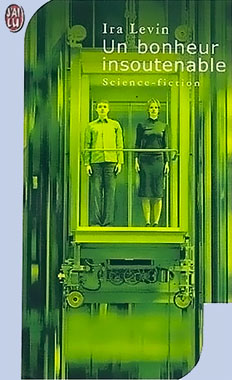
***
(texte original)
PART ONE
GROWING UP
ONE
A city's blank white concrete slabs, the giant ones ringed by the less giant, gave space in their midst to a broad pink-floored plaza, a playground in which some two hundred young children played and exercised under the care of a dozen supervisors in white coveralls. Most of the children, bare, tan, and black-haired, were crawling through red and yellow cylinders, swinging on swings, or doing group calisthenics; but in a shad-owed corner where a hopscotch grid was inlaid, five of them sat in a close, quiet circle, four of them listening and one speaking.
"They catch animals and eat them and wear their skins/' the speaker, a boy of about eight, said. "And they—they do a thing called 'fighting.' That means they hurt each other, on purpose, with their hands or with rocks and things. They don't love and help each other at all."
The listeners sat wide-eyed. A girl younger than the boy-said, "But you can't take off your bracelet. It's impossible." She pulled at her own bracelet with one finger, to show how safely-strong the links were.
"You can if you've got the right tools," the boy said.
"It's taken off on your linkday, isn't it?"
"Only for a second."
"But it's taken off, isn't it?"
***
(traduction de Franck Straschitz)
PREMIERE PARTIE
L'ENFANCE
1
Piliers de béton blancs et aveugles d'une ville, géants entre de moindres géants, entourant une vaste place rase où s'ébattaient quelques deux cents enfants encadrés par une douzaine de surveillantes en blouses blanches. La plupart des enfants - nus, bruns, aux cheveux noirs - rampaient à travers des cylindres jaunes et rouges, jouaient à la balançoire ou faisaient de la gymnastique par petits groupes ; mais dans un coin ombragé, assis en demi-cercle sur un quadrillage de marelle incrusté dans le sol, quatre d'entre eux écoutaient un cinquième parler.
- Ils attrapent des animaux, les mangent et s'habillent avec leurs peaux, disait celui qui parlait, un petit garçon de huit ans. Et aussi, il se..."battent". ça veut dire qu'ils se font mal, exprès, avec les mains ou bien avec des pierres ou des bâtons. Ils ne s'aiment pas et ne s'aident pas. Pas du tout.
Les quatre enfants l'écoutaient bouche bée. Une petite fille, plus jeune que celui qui avait parlé, dit : "Mais on ne peut pas ôter les bracelets. C'est impossible."
***

